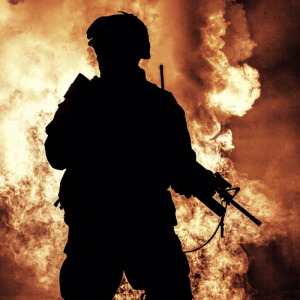In the realm of military law, few offenses evoke a sense of gravity and apprehension like the term "mutiny." This term, often conjuring images of organized rebellion and chaos, is a concept deeply entrenched in military codes of conduct around the world. In the United States, the Uniform Code of Military Justice (UCMJ) addresses mutiny as a serious offense that strikes at the core of military discipline. In this blog post, we will delve into the world of mutiny under the UCMJ, exploring its legal implications, historical context, and the underlying principles of maintaining order within the military ranks.
Understanding Mutiny: Under the UCMJ, mutiny is defined as a willful disobedience of a superior officer's lawful orders, coupled with an intent to usurp or override the authority of that officer. While the term "mutiny" might evoke thoughts of large-scale revolts, the UCMJ recognizes different degrees of mutinous behavior, acknowledging that even a small act of defiance can undermine military cohesion and effectiveness. This definition underscores the paramount importance of maintaining chain of command and preserving the hierarchical structure within the military.

Historical Context: The specter of mutiny is not a new phenomenon. Throughout history, armed forces have grappled with the challenge of preserving discipline in the face of discontent and dissent. From the mutinies in the British Navy during the 18th and 19th centuries to more recent instances in modern military history, such as the Indian Navy Mutiny of 1946, these events have highlighted the delicate balance between addressing legitimate grievances and preventing outright rebellion. The ucmj mutiny stance on mutiny reflects the lessons learned from these historical incidents, seeking to deter any behavior that might erode the stability of the military.
Legal Implications: Mutiny is one of the most serious offenses under the UCMJ and can lead to severe consequences. Article 94 specifically addresses mutiny and stipulates that any service member who engages in, or conspires to commit, mutiny shall be punished by death or by imprisonment for any term of years or for life. The severity of this punishment underscores the military's zero-tolerance approach to any act that threatens discipline and unity within the ranks. It also serves as a deterrent against individuals contemplating acts of insubordination or defiance.
Preserving Military Discipline: Military discipline is the cornerstone of an effective armed force. A well-disciplined unit operates cohesively, allowing for the successful execution of complex missions and the protection of national security. Mutiny, by its very nature, disrupts this cohesion and can jeopardize the safety of both service members and civilians. The UCMJ's stance on mutiny reflects the principle that the military must function as a well-oiled machine, with every cog working in synchronization to achieve its goals.
Conclusion: In the world of military law, the concept of mutiny stands as a stark reminder of the consequences that can arise from a breakdown in discipline. The UCMJ's strict approach to mutinous behavior reflects the imperative to uphold the chain of command and maintain a unified front. As we reflect on the historical contexts that have shaped the UCMJ's stance on mutiny, it becomes clear that while the definition of mutiny may have evolved over time, its underlying principle remains constant: the military's foundation relies on unwavering obedience, cooperation, and respect for authority. Through this lens, mutiny becomes not only an offense against the military structure, but also a potential threat to national security itself.



